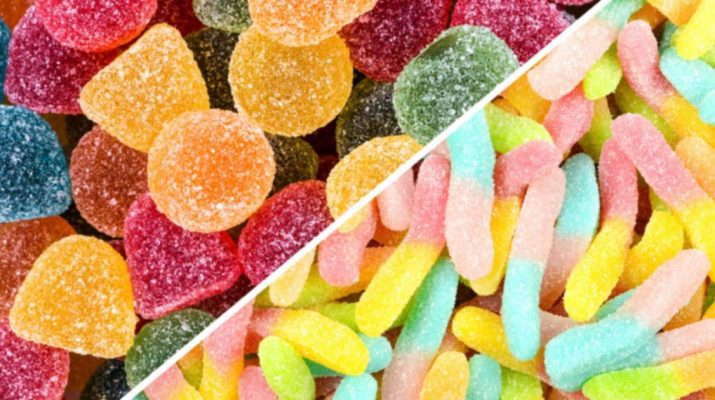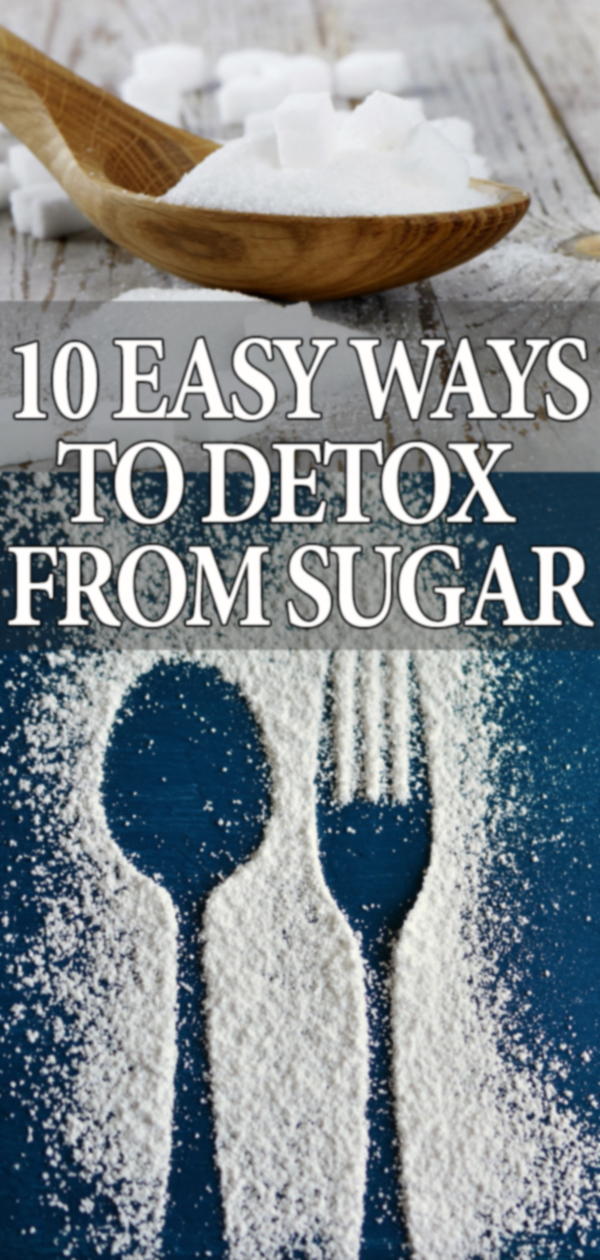So many things taste better when they’re sweet. In foods that range from ice cream to coffee, sugar is an ingredient most of us enjoy. There are so many products that have unnecessary added sugar, however. For example, spaghetti sauce, canned fruit, juices, cereals, and more have added sugar, usually hiding under different names and with different textures. Corn syrup, barley malt, dextrose, cane juice, and dextrin are a few examples of these names; in total, there are 61 different names for sugar.
No matter the name, it’s all the same to your body. Even artificial sugar has been shown to affect how your brain and other organs interpret sweetness. Those effects can create a dependence that you need more and more to get the same level of sweetness. Additionally, sugar does create a “rush” or euphoric feeling to the brain. Your brain will want something to create that feeling again, and sugar is convenient.
Awareness of how sugar affects our health and well-being is more recognized now than in years previous. Further understanding of how your lifestyle habits affect your “need for speed” and how sugar, fats, and carbohydrates relate to each other and affect the body and brain can all lead to learning how to decrease sugar from your diet. Reducing sugar from your diet will lead to cravings or a detox period. Read further to discover ten easy ways to detox from sugar and be on your way to a healthier lifestyle. But first, let’s discuss why we often feel the need to maintain or increase our sugar intake.
Lifestyle Habits That Lead To Cravings
Regardless of where we get our sugar, we have certain lifestyle tendencies or habits which encourage our abuse of sugar.
- Lack of sleep
Most Americans do not get a full 7-8 hours of sleep needed for their day. This can be due to several reasons, but one of them you may not guess is sugar intake. When it comes to sugar and sleep, there is a chain effect and cycle that occurs.
-
- Link to sugar and disrupted sleep. A study performed in 2016 demonstrated that eating a diet high in fats and sugar vs a diet with limited sugar, low fat, and high fiber can lead to less time spent in deep, slow-wave sleep. This is the stage that allows our mind and body to restore itself and heal, and that helps to maintain our metabolism and immune system.
- Sugar releases dopamine in the brain. Dopamine is a hormone released that stimulates pleasure and satisfaction sensations. As we become accustomed to eating a certain amount of sugar, we need more sugar to create the same excitement. Yes, just like a drug addict. Sugary food and the increase in body fat which typically accompanies it reduces our body’s ability to suppress hunger and regulate our metabolism. This, in turn, can affect our sleep because we begin craving food when we should be sleeping. To add to that, eating sugar just before going to sleep awakens your brain as it receives satisfaction and pleasure, making it harder to fall back to sleep or sleep well. This is also true if eating right before going to sleep.
- Poor sleep leads to a higher desire for sweets. Studies have shown that regular sleep deprivation interrupts the formation and benefits of two important hormones: leptin and gherlin. These hormones are responsible for appetite regulation. It also interferes with insulin, the big boss for keeping our blood sugar in balance. Decreasing the manufacturing of these hormones equates to an increase in cravings for sugar.
- Sugar and increased inflammation. Pain is one of the top reasons for sleep to be interrupted. Inflammation is one of the causes of pain. As your body is trying to repair itself, some areas become inflamed, painful, and stiff. Sugar increases this inflammation through the formation of chemicals which stimulate the inflammation process.
- Poor stress management.
Stress is a part of our lives. We experience positive and negative stress all day. Some people have learned to deal with this stress by eating sugar. As stated above, sugar releases dopamine, the pleasure hormone. When we are stressed, we seek out things to make us feel better. Also, we tend to get less quality sleep when we are stressed. With a lack of sleep, we are less able to focus or think clearly, which will only add to our inability to deal with stress.
- Skipping meals.
Not eating consistently lowers our blood sugar, which in turn makes us feel tired. We have busy schedules, and many sweet things are also quick and easy to eat. It provides that rapid “rush” we need to keep going until we crash as the effects wear off. Additionally, we then become famished later, which leads to poor food choices that are usually higher in sugar, carbohydrates, and fats.
Fats, Carbohydrates, And Sugar
Carbohydrates and fats are essential to our diet as a form of long-term energy when eaten in proper moderation.
When carbohydrates break down in the body, they create simple sugars. To your body, there is no difference between various types of sugar. They all break down as either fuel for the body or fat storage. Glucose is necessary as fuel for the body and the brain. Glucose is stored in the liver and muscles until we need extra energy. Insulin is the hormone that allows our muscles to extract glycogen from the bloodstream and works to regulate the amount released.
According to the Heart Association, our caloric and nutritional intake should consist of 45 – 65% carbohydrates depending upon activity level. The Heart Association has stated that we should only intake 5-10% of our calories from added sugars. Currently, the recommendations are that women have only seven teaspoons of sugar a day, or 25 grams, and men should only have nine teaspoons or 37.5 grams of sugar. It is estimated that Americans consume about 19 teaspoons a day.
If we were to add fats into this picture, our brains would be very happy! Studies have shown that we receive more pleasure from a meal which contains carbohydrates, sugar, and fats than a meal with only one of the three. We are also more likely to eat a meal or snack with all three despite not genuinely feeling hungry. Essentially, adding fat to sugar and/or carbs will only increase your desire for them, resulting in mindless eating and calorie intake. Fats as an added substance only magnify your craving for the other two as well.
Choosing to eat healthy fats such as avocados, almonds, peanuts, and eggs, which also contain protein, do not seem to lead to this cycle as much as meat and dairy fats. Choosing high-fiber grains in place of highly processed carbohydrates also do not lead to this cycle, as the sugars break down much slower. Your brain is not getting the dopamine release of pleasure to the same extreme.
10 Easy Ways to Detox
Maybe by now, you’ve researched how much sugar is in your Starbucks in the morning, your chocolate bar at lunch or the glass of wine before bedtime and you realize that it’s high time to cut down on your sugar intake.
Reducing or eliminating sugar from your diet does initially have a withdrawal effect. You are going to notice a decrease in energy, headaches, more sugar cravings, and irritability. Here are ten ways to detox from sugar and limit the side effects or decrease the time it takes to overcome the cravings.
- Drink a lot of water.
Water flushes toxins out of your system. It not only helps in getting the residual sugar out of your body but also will rinse the taste of sugar from your taste buds.
- Go for a walk or other form of exercise.
Exercise not only can create the dopamine your brain is craving, but it acts as a distraction and also helps to purge the sugar out of your system.
- Eat regularly throughout the day.
Remember, one of the reasons you crave sugar is from skipping meals. Eating regularly will also increase your blood sugar. If you eat small amounts of healthy foods throughout the day, then you will be less likely to want a sugary treat.
- Keep fruit as a substitute.
If you usually keep a bowl of candy at your desk, change it out for apples. It will still be sweet, but you are getting fiber with it, so you won’t get the same rush, and it’s better for your body.
- Keep protein snacks.
Snacking on nuts or seeds as a substitute is also great. Protein can help you stay focused and give you a pick-up in energy without causing you to crash later.
- Get good sleep.
As lack of sleep is both a trigger and cause of sugar cravings, try to make sure you get 7-8 hours of sleep. Plus, that’s fewer hours trying to ignore the ice cream calling from the freezer.
- Don’t go cold turkey.
It is not recommended for people to quit cold turkey. Nothing horrible will happen if you do, but most people can’t handle it. Don’t add to your stress. Maybe start by drinking half of the soda you normally drink with lunch. Cut your sugar portions down bit by bit.
- Do not replace sugar with artificial sweeteners.
Artificial sweeteners are hundreds to thousands of times sweeter to your taste buds than regular sugar. Artificial sweeteners may not have calories, but the body still interprets them as sugar – and you will still have the taste of sugar on your taste buds.
- Focus
Pay attention to what you do eat at each meal or in between meals. Don’t mindlessly eat at your desk while working, or while watching TV. Sit at a table and pay attention to the flavors and textures of what you are eating. Maybe notice and take note of what you like about each food.
- Support and reward.
Tell those close to you of your purpose and have them help you. They can remind you of why you are choosing to decrease sugar and be a cheerleader (or a linebacker to block the freezer). Plan a great reward with all of you together after a few days of progress. Give yourself some little reward each day.
Whether you choose to decrease your intake through cutting back on empty-calorie sweets, processed foods and grains, or plan on cutting out sugars entirely, you will feel the benefits in a short amount of time. These ten tips can help you make an easier time of it and lead to your success.


